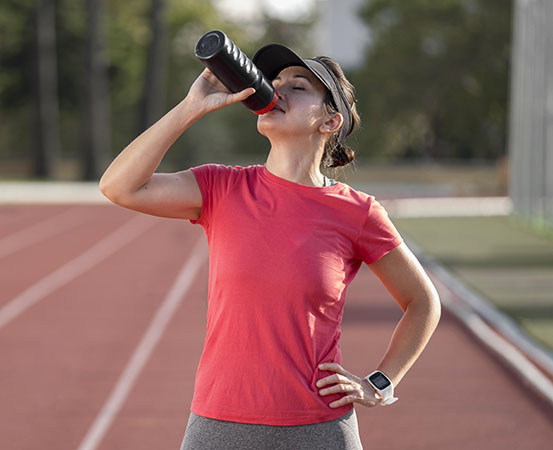
The discourse around running has transformed over the past few decades. What was once an activity done for leisure has now incorporated scientific approaches which vary with distance — 5K, 10K or a marathon. Runners meticulously plan and chart out their routines for regular training and big race-day runs.
Diet needs a watchful eye too, because when someone mentions runner’s diet or nutrition, people fall into a quandary as to what to consume before, during and after a run.
Similar to how the post-running diet is essential for recovery, the food one consumes pre-running and during the run influences not only the performance but also recovery and overall well-being. A runner needs a properly planned diet for their regular and race-day runs.
Runner’s diet: Pre-running nutrition
A 2007 research paper says that everyday eating patterns should supply the fuel and nutrients needed by the body to optimize performance during training sessions and aid in quick recovery thereafter. The race-prep strategies should include the consumption of adequate food, which includes carbohydrate loading for long events. Most other supplements are of minimal benefit, the study says.
When it comes to diet for runners, most people assume that food consumption depends on the distance of the run. But that’s not the case.
“Food consumption doesn’t depend on the distance,” says Kaushik Panchal, a Mumbai-based marathon coach and founder of Runner’s Academy. “It depends on your appetite and on how your gut is trained [to digest]. It’s not like a person running 42km will eat more and a person running 5km will eat less.”
It’s also important to remember what not to eat before a run. “Food that will make an individual gaseous or bloated, which is not a good feeling during runs, and proteins that are difficult to digest should be avoided,” adds Panchal. “Before running, you should eat food that is easy to digest, non-gaseous and non-spicy.”
According to Panchal, a common mistake people make is to go running on an empty stomach. One should neither be full nor should the stomach be empty during a run.
The type of food you consume a night before running also affects the overall run.
Abhishek Pandher, a 46-year-old long-distance runner from Ahmedabad, Gujarat, has had his share of sluggish experiences after eating heavy food the night before a run.
“The day before is as important as the day of the run,” says Pandher. “One should not have heavy food the night before. By heavy, I mean in large quantities. It must be something light. Rice is good as it has carbs. And noodles, which should be chewed properly. One should also avoid fried items if they want to have a good run.”
Diet and hydration while running
Replenishment while covering long distances is important too.
“If someone is running long distances, whatever they had before the run will get used up after some time,” says Panchal. “So, ideally between 45 minutes to one hour, an individual should replenish with sources such as bananas, oranges or dried fruits like dates. In a full marathon, there is something called ‘hitting the wall’. After completing 32km, the glycogen in the body gets depleted and the muscle cannot expand and contract. At that point in time, replenishment is essential.”
Also, hydration and running go together. Hydration plays an important role in preventing muscle cramps while running. Planning a water and electrolyte intake routine is essential.
“Overhydration and underhydration both are bad for the body,” says Panchal. “Before a run, it is important to empty the bladder. During runs, runners shouldn’t gulp water — since electrolytes are lost from the body with sweat, runners should sip water mixed with electrolytes or salt at regular intervals.”
Pandher recommends making a homemade natural drink which will help replenish electrolytes. “As electrolytes are lost with sweat, muscle cramping can occur,” he adds. “For this, an individual can mix lemon, sugar and salt with water, which can be sipped during the run — say, after every 2km.”
Post-run diet for runners
The popular perception is that protein-rich food is the way to go after any physical activity. But that’s not the full picture, as replenishment of glycogen stores is also important. This is where carbohydrates run the show.
“Post-running, the glycogen level in the muscles is almost negligible and it must be replenished,” says Panchal. “So, protein alone will not do. The diet should be a combination of protein and carbs — say, in a ratio of 60% carbohydrate and 40% proteins.”
Takeaways
- For a runner’s diet, what to avoid before running is more important than what to eat. Runners should avoid proteins and food that can cause bloating. The food should be easy to digest.
- Replenishment of energy, electrolytes and water is essential while running long distances. Replenish every 45 minutes to one hour during the run. A runner can have fruits like bananas and oranges, or dried fruits like dates.
- Having just water will not suffice for hydration as runners lose electrolytes while running. So, the water sipped should be mixed with electrolytes to avoid muscle cramping.















